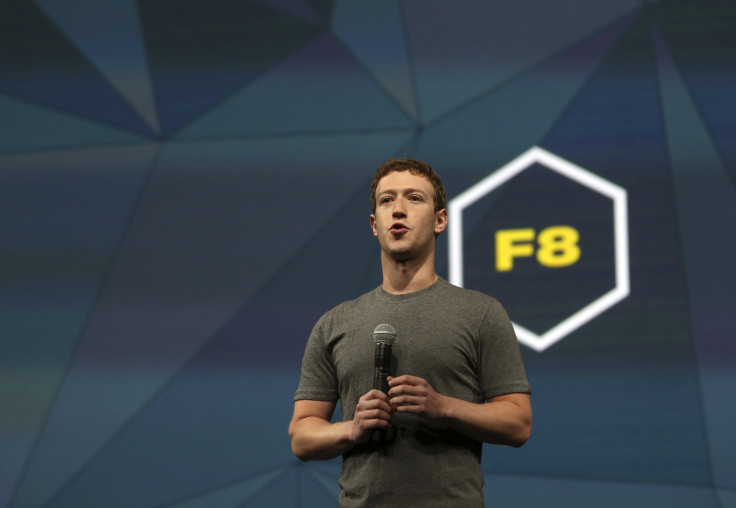Facebook Rumors Abound As F8 Begins: What's The Plan For Oculus, Messenger And WhatsApp?

Last year, Facebook paid $19 billion for WhatsApp, $2 billion for Oculus VR and made major efforts to grow Instagram, Messenger, Internet.org and Facebook Video. What does all that add up to? The Menlo Park giant has shed little light on how the new members of its growing portfolio will work together, let alone make money.
That’s what developers will be tuning into Facebook’s F8 conference for: to learn about the roadmaps the company has for each of its products and business units. That includes Instagram, Messenger, Facebook Video, Internet.org, Parse, ad company LiveRail, WhatsApp and Oculus VR. The conference will feature sessions with speakers from all of Facebook’s entities, and the company is expected to make announcements across the board.
“Not all of these things fit together, so it’ll be interesting to see whether Facebook is going to make an effort to make all of these different services fit together or if they’re going to operate really as standalone business units and what that means for the company,” said Debra Aho Williamson, principal social media analyst for eMarketer.
Opening Up Messenger
Rumors are flying on what to expect from the conference, which kicks off Wednesday. For the first time, F8 will be held over the course of two days, reflecting the tech company’s evolution from a social network into a full-fledged tech titan with businesses ranging from its traditional social advertising to further-looking efforts in online video, virtual reality and messaging platforms.
One of the biggest rumors is that Facebook will turn its Messenger communications app into a platform that developers will be able to build their services into, similar to WeChat and Line, two popular messaging apps in Asia. This would give developers a new way to reach users, and it would potentially create another revenue stream for Facebook.
“Facebook has bigger plans for Messenger,” said Craig Agranoff, co-founder of Gripd.com, a digital marketing agency. “Sure, you can send pics and you can take video, but certain people -- and we’ve seen this in Asia -- they want third party apps on this. They want the ability to buy different emojis and things that other people might find silly, but it’s a tremendous money maker.”
Mobile Ad Exchange
Another big rumor is that the company will introduce a mobile ad exchange to rival MoPub, the ad server acquired by rival Twitter in late 2013. With a service like MoPub, developers would be able to deliver targeted ads to their users, creating more revenue for Facebook, which would take a slice of each ad that’s bought.
F8 “used to be such a thing where developers were so excited about building a Facebook Connect thing or a Facebook Page, and now it’s evolved into this megaconference of all the stuff that Facebook has under its portfolio, which is really complicated,” said Johnny Won, founder of Hyperstop, a tech consultancy firm. Won said the conference signifies Facebook’s graduation from just a social network into a full fledged tech titan with many “different pots that are all really interesting and growing all over the world.”
Facebook Video, for example, now counts more than 3 billion video views per day and has emerged as the first true threat to Google's YouTube. Instagram, Messenger and WhatsApp don’t yet contribute to the bottom line but have audiences of 300, 500 and 700 million monthly active users, respectively. Meanwhile, Oculus VR is nearing a consumer launch and spearheading a new market for the tech industry that could be worth $7 billion by 2018 with room to grow.
Facebook is now tasked with monetizing all of these units and showing both advertisers and developers how they too can get in on the riches. Wall Street has taken notice. Facebook shares broke an all-time record of $86 a share on the New York Stock Exchange Tuesday.
“This is probably one of the biggest, most interesting technology companies on the planet,” Won said.
© Copyright IBTimes 2025. All rights reserved.




















